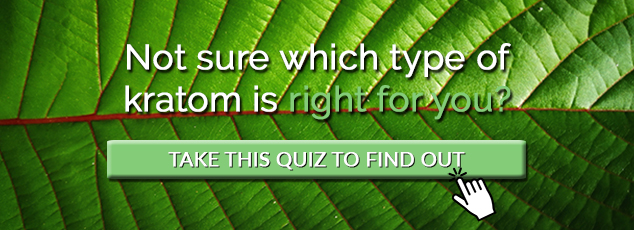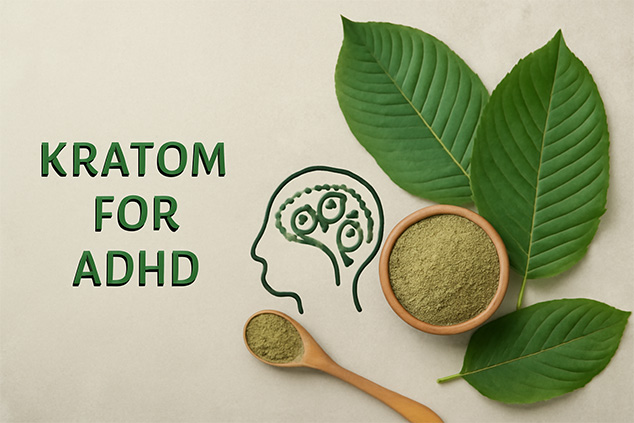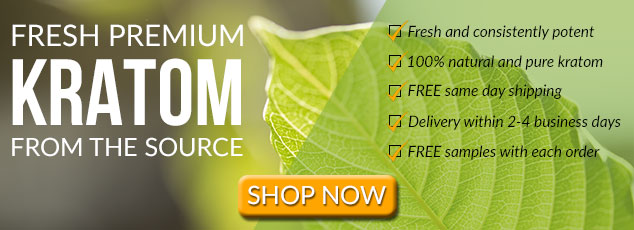While data indicates that only 2 to 5% of adults globally are affected by ADHD, studies suggest that numbers are likely to be higher. Many adults are undiagnosed and not treated or misdiagnosed and treated incorrectly. Therefore, if you have been diagnosed with or believe you may have ADHD and are considering taking kratom for ADHD, below, we’ve compiled the information that you should know.
What Is ADHD?
ADHD or Attention Deficit Hyperactivity Disorder is a medical condition that affects children and teenagers, but can also extend into adulthood.
People affected by ADHD are highly active, have a hard time staying still, and have limited attention spans. There are three types of ADHD:
- inattentive type (also known as ADD),
- hyperactive and impulsive type, and
- combination type.
It is currently unclear what causes ADHD. However, scientists speculate that causes may be primarily genetic or developmental.
Three out of every four children with ADHD are related t someone with ADHD. Other potential causes are premature birth and brain injury. The mother smoking, consuming alcohol, or having a lot of stress during pregnancy can also potentially cause the disorder.
According to current studies, the prevalence of ADHD in adults seems to decline with age.
What Are the Symptoms of ADHD?
The symptom of ADHD will depend on its type.
People of the inattentive type:
- have a hard time maintaining attention,
- struggle when listening and following instructions,
- have difficulty with tasks that need sustained focus,
- cannot effectively organize tasks or manage their time,
- may forget daily tasks such as chores, appointments, and returning phone calls,
- make careless mistakes,
- are easily distracted,
- are forgetful, and
- easily lose things.
Meanwhile, people of the hyperactive and impulsive type:
- are restless,
- cannot stay still,
- find quiet activities challenging,
- talk excessively,
- blurt out answers before even a question is finished,
- interrupt others,
- have a hard time taking turns or standing in line,
- fidget, and
- take over what others are doing.
The combination type can manifest any of the symptoms pertaining to the two types above.
As people age, their symptoms can change, making ADHD even harder to diagnose. Common symptoms among adults can also be:
- anxiety,
- depression,
- chronic boredom,
- disorganization,
- procrastination,
- anger issues,
- problems at work,
- relationship issues,
- disorganization,
- mood swings,
- low self-esteem.
Why Is ADHD a Problem?
It’s estimated that ADHD affects approximately 8.4% of children and 2.5% of adults. However, the actual numbers may be much higher.
There are no lab tests, MRI, PET or CT scans that can diagnose the disorder. Instead, a mental health professional makes a diagnosis based on an interview and observation.
If a person displays at least six (five for adults) of the ADHD symptoms since before the age of 7 for a minimum of six months in at least two settings (home and work/studies), they receive the AHDH diagnosis.
When it comes to adults, ADHD is frequently undiagnosed or misdiagnosed. If left untreated, it can cause the adult to engage in risky and dangerous behaviors such as substance abuse, risky sexual behaviors, dangerous driving, speeding, and more. It can cause problems at work and negatively affect friendships and romantic relationships.
Some common ADHD medications can also have negative side effects. They may affect people’s behavior, health, and mental state.
While medical sources state that ADHD drugs aren’t addictive when used as prescribed, they do, nonetheless, state that they can be habit-forming which is basically a term that means the same but has a less negative connotation. Many also take them to enhance their performance and, thus, can fake the disorder.

Common ADHD Treatment Methods
If diagnosed, ADHD is treated with prescription drugs. Depending on the type of ADHD, those could either be a stimulant or non-stimulant drugs.
Stimulant drugs include Adderall, Ritalin, Focalin, Metadate, Concerta, Dexedrine, and Vyvanse. Non-stimulants can be Tenex, Strattera, Kapvay, and Intuniv.
Can You Use Kratom for ADHD?
While scientists still do not know what causes ADHD, they have, however, found a correlation between low serotonin and low dopamine levels and ADHD.
Dopamine is a neurotransmitter that helps us control our motivation, movement, as well as affects our memory and focus. In the meantime, serotonin helps us regulate mood, emotions, social behavior, sleep, and appetite.
As kratom alkaloids bind with opioid receptors, that signals your body to release more dopamine. In addition to that, mitragynine in kratom activates serotonogenic pathways. These qualities can provide beneficial effects for those who struggle with ADHD.
Benefits of Kratom for ADHD
Kratom does not only relieve the same symptoms of ADHD, but it’s also a natural substance. Its side effects are less disruptive than those of prescription ADHD drugs. They are easily preventable and curable with proper kratom use.
In addition to the above, kratom addiction potential is equivalent to that of coffee making kratom for ADHD a much more effective solution. Below are a few of the benefits you may experience:
1. Anxiety Relief
One of the benefits of kratom is its ability to relieve anxiety. It’s not uncommon for people with ADHD to experience anxiety, especially as they get older. Red strains are some of the most effective I relieving anxiety.
2. Natural Sedative
Drugs prescribed to people who suffer from hyperactive-impulsive ADHD have a sedative effect. Slow strains of kratom have it too, making kratom a great alternative for ADHD.
3. Clarity of Mind
Fast and moderate kratom strains improve the clarity of mind. Users report clearer thoughts and fewer disruptive thoughts. Therefore, white and green strains of kratom can be effective for the inattentive type of ADHD.
4. Improved Focus
White strains and greens such as Green Maeng Da and Green Malay can be helpful to those who have a hard time concentrating and maintaining focus.
Best Kratom Strains for ADHD
1. Red Bali Kratom
Red Bali Kratom is a powerful natural sedative and pain reliever. It also relaxes, relieves anxiety and improves the mood. It can also be effective to relieve sleep issues which people with ADHD may struggle with.
However, keep in mind that Red Bali is a slow strain and is better suited for the afternoon or evening when you would want to relax. Using it as a day-time strain may make you feel sleepy.
2. Red Borneo Kratom
Red Borneo Kratom is a red strain, though it is more moderate than Red Bali and produces effects that are a bit closer to those of Green Malay. This red strain is effective in relieving anxiety and helping with depression symptoms. It also works as a natural sedative and provides relaxation.
3. Green Maeng Da Kratom
For those who are looking for a day-time strain that provides the clarity of mind, Green Maeng Da Kratom for ADHD can be a great option. It also boosts energy levels, improves the mood, and relieves depression symptoms.
Moreover, Green Maeng Da can also give you a confidence boost and make socializing easier. Thus, if ADHD is causing you problems at work, this kratom strain can help.
4. White Horn Kratom
White Horn Kratom excels at improving the focus and mood and providing the clarity of mind. Thus, it can be a great strain of kratom for ADHD, especially if you experience depression and need more energy at work or when studies.
5. Red Sumatra Kratom
Despite being a red strain, Red Sumatra Kratom provides mild stimulating effects in addition to pain an anxiety relief. Therefore, if you like the effects of the reds, yet are looking for something that is not as sedative, you may want to try Red Sumatra Kratom for ADHD.
Precautions
Keep in mind that kratom for ADHD should only be taken by adults. While prescription drugs can be very harmful, addictive, and expensive, especially to developing brains and bodies of children and adolescents, there are legalities to take into consideration.
Because of that reputable kratom vendors do not sell the herb to people under 18 or 21. Certain locations also have an age limit for kratom sales and purchasing.
Have you ever tried kratom for ADHD? Which strains do you prefer? What effects did you experience?



Leave a Reply